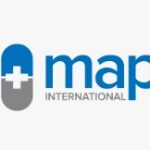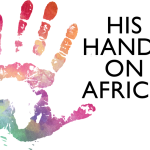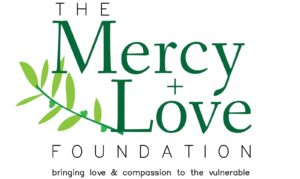MERCY CHILDREN’S HOSPITAL



Population:
The staggering statistics by UNICEF show that despite improvements in sub-Saharan Africa in recent decades, 1 in 13 children die under the age of five, compared to 1 in 195 in developed nations. Infectious diseases (such as pneumonia, malaria, and diarrheal diseases) constitute the most common cause of death in children under the age of five years old. If this trend continues, 31 million children under the age of five will die in Africa by the year 2030. Currently, sub-Saharan Africa has 3 public children’s hospitals (two of those located in South Africa) to cater to the continent’s 450 million children.
Intervention:
The proposed 500 bed state-of-the-art center for excellence in pediatric healthcare is slated to be the first mission hospital of its kind in Nyanza-Kenya and East Africa. We envision an accessible, affordable children’s hospital that delivers compassionate, quality care to the entire East African region. The hospital will also include a maternity wing and an outpatient/primary care building dedicated to keeping children and pregnant women in the community healthy.
Outcome:
When compared to previous years, the expectation is that mortality rates will improve among children
under 5 years old due to timely access to affordable medical services/medications and an overall
healthier population due to access to affordable primary care services. Primary care consists of education, early intervention, and surveillance.
Budget:
Phase 1 – $1 million USD
Outpatient Building – consisting of primary care services such as dental, ophthalmology, mental health, immunizations, & general practitioners.
Phase 2 – $80 million USD
Inpatient Building & Diagnostics – consisting of ER and inpatient units such as med-surg, critical care, OR, newborn nursery, and oncology.
Proposal available on request.
Pledge Now
Leave a lasting legacy that will impact generations. Save precious lives of children from preventable deaths. Depending on the level of your donation, you can have a ward or building listed in Memory of a loved one or in Honor of your name.
Email: info@mercyandlovefoundation.org

REPORT ON SANITARY PADS DRIVE IN KISUMU, KENYA – 26TH AND 27TH FEBRUARY 2021
For an average of two to seven days a month, girls have to deal with their menstrual period – in one way or another. Generally starting at menarche (usually between the age of 10 and 16), this recurring biological process has a significant impact on the lives of school girls. Menstrual Hygiene Management (MHM), the way in which girls deal with their menstruation is crucial in their learning system, both physically and psychologically. Many factors account for effective Menstrual Hygiene Management, which in turn means that, unfortunately, many factors can hinder effective MHM. In low- and middle-income communities, in particular, practicing good menstrual hygiene is a difficult task for school girls due to various reasons. Women and girls lack access to appropriate infrastructure. Commercial menstrual management supplies are either not available or unaffordable. Supply of water at home and in school is poor…….All of these have consequences for the health, well-being and education of women and girls.
Significant barriers to high-quality menstrual hygiene management (MHM) persist across Kenya and in particular, along the lake region, a huge challenge for low-income women and girls. Girls face monthly challenges, with 70% of women and girls in the region unable to afford sanitary pads and therefore do not attend school during their menstrual period. There are also more jarring statistics signalling that menstruation is tied to more fundamental risks and issues of gender inequity, with studies showing 2 out of 3 of pad users in the region receiving them from sexual partners.
Mercy and Love foundation, in their core mission, visited Kisumu County on 26th and 27th February 2021, and distributed sanitary pads to orphans and to some of the very vulnerable girls in the community. This is a brief report on the visit:
- KISUMU CHILDREN’S MINISTRIES/TIENGRE PRIMARY SCHOOL – 26TH FEBRUARY
This is a home for orphans and vulnerable children. The home also offers a feeding programme for other vulnerable children from the community, who do not stay there but who come for lunch every day. This ensures proper nutrition for the children, most of whom are orphans living with old grandmothers or other relatives. Poverty is prevalent in the community and it clearly manifests itself in other socio-economic outcomes such as poor nutrition, health, and education, as well as a lack of access to basic services. Children from this home learn at Tieng’re primary school, which is a public primary school at a walking distance from the home.
On the day of the visit, the children were at the school and so we decided to visit the school, where we were informed of the state of most the other children at the school. Although the school population of the girls above 12 years is over 150, with most of them clearly very needy, we only donated to 20 packs and asked the teachers to distribute, with a promise to fill the gap.
Tieng’re primary school
- KORANDO MADOMA PRIMARY SCHOOL
This School is situated in Kisumu, along Busia road. Managed by a widow, who was a government employed teacher for 20 years. When she lost her two sons, 14 years and 27 years old in a span of one year, in 1996. She went into depression and took early retirement. It is during the dark period in her life that she founded the home, to cater for those in the community, and there were many widows and orphans, who were going through similar trauma but who did not have any shoulder to lean on. “All things work together for the good of those who love the Lord….”
The long term effect of orphan-hood is negative, they are at an increased risk for suffering from malnutrition, poor physical and mental health. The effects of malnutrition and poor health are far reaching. In addition to potentially causing early death, they can also lead to low educational enrolment and low attendance because malnutrition can lead to delayed intellectual development, Korando seeks to offer quality education to orphans and vulnerable children in the community to counter this effect. Due to vulnerability in some of the homes, they have boarding facility and a feeding program.
Mercy and Love foundation donated 15 packets of sanitary pads to Korando Primary school and promised to come back to fill the gap.
To mention particular unfortunate incidents experienced in this school:
- One girl, mother died, father is an alcoholic. On several occasions, the father, in his drunkenness, has attempted to rape his daughter. The girl ran from home and was rescued by the community. She permanently stays at Korando school.
- Three children, total orphans, were staying with their very old grandmother, who suddenly fell ill and died in the house. The children were so traumatised that one stopped talking for over three months. The three are currently staying at the home
- A parent comes to the school, saying they have slept hungry for three days. The children have been absent from school for over one week. The oldest is 14 year old girl, who has refused to come to school due to lack of sanitary pads. The school has to provide food for the parent and sanitary pads for the girl.
- Uniform is a problem, as is evident below:
The neighbourhood, which the school is serving looks like this:
Some classes have to be held under trees
- ST WILLIAM COMMUNITY LEARNING CENTRE
This school is situated along Kisumu/Busia road. With a population of over 400 pupils, 70% of whom are girls. Over 100 girls are of the age of menstruation. The children are all from very poor background. Most of them are of single mothers, many of whom are sick and cannot fend for their children. These children face a variety of disadvantages and impediments, which increase their vulnerability and helplessness. We learnt that it is common for girls to engage in transactional sex or seek out boyfriends to obtain goods that meet their basic needs, including sanitary pads.
Mercy and Love donated 10 packs in this school and asked the teachers to distribute pads to all needy girls, with a promise to come back and fill the gaps
Following are a few of the experiences at this school:
- One pupil living with step mother, who discriminated against her, her mother died and father remarried. At times she comes to school and is bleeding, without sanitary pads. The teachers narrated how they take care of such children
- Some children come to school hungry, some have no uniforms
- Mother is bed ridden, teacher has taken the two children to stay with and cater for all their needs.
- Teacher narrated how many children lack pants, come to school with very tattered pants
- There have been cases of girls being lured with sex for exchange of sanitary pads and other items. Some girls have got pregnant while there are cases of some who contracted STDs and HIV and dropped out of school
- EMMOUSE COMMUNITY SCHOOL
This school is situated at Obunga slums. Well known for illegal alcohol (Changaa and Busaa), mostly brewed by women. Most men work on construction sites, are motor cycle riders, hand cart pullers. Most adults have not been to school, with the highest reaching class 8.
The school started in the year 2010 as a kitchen for widows to feed the orphans in the community.
What is notable in this slum dwelling is the number of widows struggling to make ends meet. The proprietor of this school, has brought together a group of widows who meet regularly to encourage one another and given them entrepreneurial skills to enable them make ends meet. Currently, they are able to make liquid soap, which they sell to the community. Some are also attempting to make disposable sanitary pads. Evidently, these pads pause hygienic challenges because of lack of running water for thorough cleaning before re-use.
The girls are desperately in need of sanitary pads. The school has over 60 girls aged 12 and above.
Some experiences here were:
- Most girls narrating how they miss school every time they have their periods because of the shame of spoiling their uniform in school.
- Some said they use pieces of old clothes, others tissue papers, which cannot contain the bleeding for long, while
- Some have to use any means get pads, including befriending the motor cycle riders.
Mercy and love donated 15 packs to the school and promised to fill the gap.
- NYANAM INTERNATIONAL
This is a local community based organisation that deals with widows and their children. Challenges abound. There was one particular pathetic case of a very helpless elderly grandmother with a constant flow of blood. She requested for pads for herself and for her granddaughters who are in boarding schools.
Sanitary pads are not be accessible to these widows and their daughters, forcing some girls to resort to alternative methods of managing menstrual blood, including the use of old clothes, mattress fibres, cotton wool, and plastic bags.
The widows came to collect pads for their daughters in school.
Mercy and love donated 20 pads to the girls, although the girls were over thirty including some widows came to collect for their daughters/granddaughters who are in boarding schools. We promised to fill the gap. Nyanam community based organisation deals with over 50 widows and over 60 girls.
- NYANZA INITIATIVE FOR GIRLS EMPOWERMENT
This is a community based organisation dealing with girls issues.
Here we came face to face with teenage girls, who admitted to have been lured into sex for items such as sanitary pads, cosmetics and other needs. Many of them dropped out of school due to pregnancy.
Some came with their babies.
The prevalence of sex for money to purchase pads is concentrated among 15-yearold girls, The provision of sanitary pads to 14–16- year-olds, in-school adolescent girls does reduce STI prevalence and promotes stability in education. Adolescent girls are unable to negotiate safe sex practices, when they are in desperate situations, thereby increasing their risk of contracting STIs including HIV or experiencing unwanted pregnancy, as evidenced with these young girls. Child marriage affects nearly one in four girls in this community, with 23% of girls reporting being married before age 18, child marriage increases girls’ risk of school dropout, social isolation, and negative health outcomes.
High cost of disposable pads makes them inaccessible to the majority of women and girls. Approximately 65% of girls in Kenya cannot afford sanitary pads on a monthly basis.
When girls can manage menstruation at school in supportive environments, they report that they are less likely to be absent and can concentrate better in class, potentially improving their educational experience. Mercy and Love foundation’s initiative to provide needy and vulnerable girls with sanitary pads has been lauded by the community leaders, the parents and the girls as a beginning of a movement that will make a lasting impact to a whole generation. It is an opportunity to improve girls’ dignity and empowerment, they will manage menstruation with dignity and without discomfort or fear. We were not able to visit all the planned institutions due to high demand of sanitary pads. We pray for God’s continued provision so that the places we’ve reached may have enough for each girls’ year’s supply.
Finally, to all the donors, who has made this possible, you have changed and redirected the course of a whole generation. May God Almighty bless you abundantly.

Mercy and Love Foundation, Inc. is a 501c3 tax exempt nonprofit organization/public charity. Our EIN is 85-0992627. All contributions are tax deductible to the extent allowable by law.
OUR PARTNERS
-

- MAP International
-

- Blessings International
-

- His Hands On Africa
-

- GuideStar
